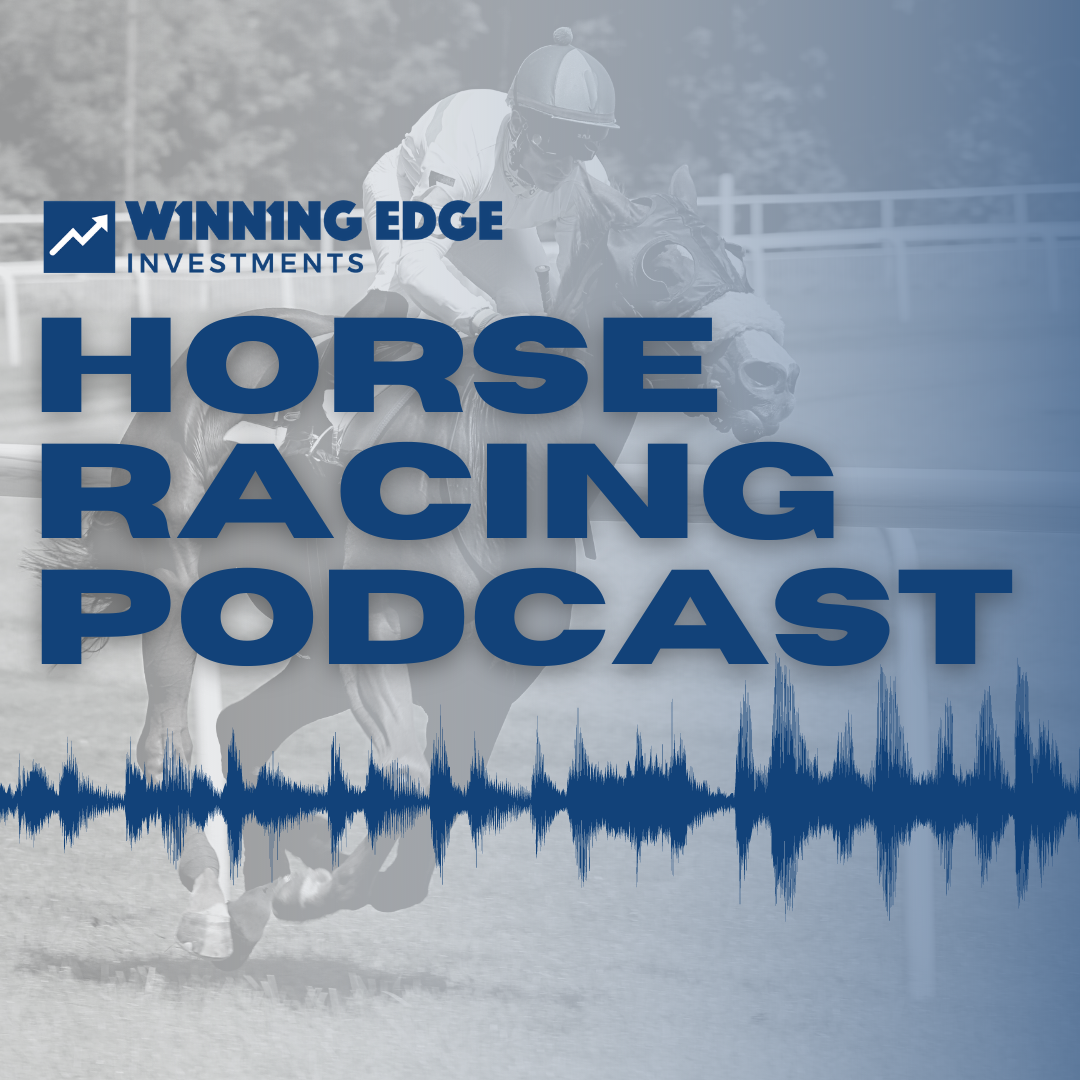
How important do you consider the weight of horses when it comes to betting?
In this interview with Nadia Horne on RSN Winners, Dean the Trial Spy discusses the impact of weight on horses when it comes to betting.
Read the Interview transcription here:
Nadia Horne: And Dean the Trial Spy is with us. Today we’re going to discuss the impact of weight on horses and also betting. How are you, Dean?
Dean Evans: I’m great, Nadia. How are you going?
Nadia Horne: Yeah, good. Look this topic today, for as long as there has been betting on horses, weight has been regarded as a crucial factor in probably affecting the likelihood of a horse winning a race. And probably because, most punters, they have enough of an understanding of the laws of physics to realise that weight must have some effect on the speed of a horse. But, I suppose these things have evolved over time. The importance of it has changed and there are definitely many, many theories on how much weight, or how much importance, we do actually put on the weight of horses.
Dean Evans: Yeah, that’s right. You know, it used to be a real key factor back in the early days and, you know, the sort of Don Scott 0:44 days and that sort of thing. And lately, the trend, sort of, is going towards, I think, you know, a lot of people focusing on times and speed and the importance of weight seems to have been downgraded a little bit over the last few years. So till today we look at whether there’s any edge to be gained by considering weight sort of as a crucial form factor, but looking at some data over 2010 to 2014 at, sort of, best tote and proportion of stakes, which is around 72000 races in total.
Nadia Horne: Let’s first of all, talk about the strike rate. So, you’ve looked into the winning strike rate and profit on turnover performances of horses by TAB numbers all across Australia over the last 12 months?
Dean Evans: Yeah, and it’s sort of interesting that the strike rate reduces as the TAB number goes down. You know, sort of, Tab #1 has a 14% strike rate, #2 a 13% strike rate, #3 a 12% strike rate, and it sort of slides down to #9 at a 7% strike rate, and #15 a 3% winning strike rate. So, it’s interesting that, you know, tab #1 has a winning strike rate sort of double that of #9, which has a strike rate double that of 15 and 16. So it sort of runs counter to what most punters believe but, you know, they get to come back to the fact that the better class horses get higher weights and the horses with lower weights are the least likely to win, and clearly class has a lot to do with that and from a profit on turnover perspective, TAB #1 to 6 actually beat the benchmark by, sort of, a range between 0.1 to 2.4% and TAB’s #7 to 16 are below benchmark. So, it again sort of shows that, at the moment, the market is definitely overrating the impact that a large weight has on a horse.
Nadia Horne: Hmmm..for sure. Well, first of all, let’s talk about the stats on the actual weight carried.
Dean Evans: Yeah, there’s not a great difference, interesting, on profit on turnover, although it is slightly better than the benchmark. Weights 60kgs to 61.5 kgs which has a 17% strike rate, 58 to 59.5 has a 12% strike rate, 56 to 57.5 is a 10% strike rate, 54 to 55.5 is 8% and 52 to 53.5 is 7%. So, again, interestingly that the winning strike rate of horses rise a couple of weight there 3:09. At 60 kg’s and above is sort of double that of 52 to 53.5. So, again, a similar sort of interesting scenario, where the high quality horses with the higher weight technically have a higher winning percentage.
Nadia Horne: And what about the importance of weight over the limit as opposed to the actual weight carried?
Dean Evans: Yeah, I think the weight over the limit is one that’s really underplayed. It’s sort of more important, I think, than simply the actual weight to be carried. You know, 58kgs in one race isn’t the equivalent of 58kg in another race, because you also need to factor in how many kg’s that is over the limit. We must also remember that the compressed weight scale these days makes the effect of being top weight less pronounced. When I ran some numbers, you know, on Trial Spy results for a certain period, if the handicap weight spread was, you know, between zero and 6 kgs there were 360 unit profit and when it was between 6.5 and 12.5 kgs there was actually a 20 unit loss. So, it’s interesting to show when there’s a really large weight spread in the race, that’s when sometimes the horses at the top of the weights can really find it hard, you know, to beat every runner in the race because there’s something down there with a really low weight maybe a unclear 4:21.
Nadia Horne: Fair enough. Racing folklore has always used the old measure that a kilo and a half is equal to approximately 1 length. Does that still apply in the modern racing world?
Dean Evans: Um, it’s sort of, it’s very much an arbitrary figure. You know, it’s only a rough guide and I don’t think it’s unclear 4:39 as sort of a one size fits all approach. You know, for example, I think what it misses out on is sort of progressive horses in good form, they’re often the best weight carriers because, you know, the increase in weight to be carried is sort of more than offset by their natural improvement and their fitness improvement. So you don’t want to be put off by an improving horse that is also up in weight. You know, I think overall the data is sort of saying a proven winner who is on the up is often a better betting proposition than a horse that is sort of well fancied predominantly due to weight relief.
Nadia Horne: And what about the impact of apprentices on weight?
Dean Evans: Yeah, I guess you want to be careful not to overestimate the weight benefits of an apprentice’s claim. You sort of also got to offset that by penalising the jockey for inexperience. You can’t sort of have it both ways. So, you know, they get 3 kg’s for a reason and you don’t over-estimate the weight relief provided by a claiming apprentice. As a group, in total, they sort of lose 7% on turnover, while the senior jockeys lose 8%, so it’s reasonably similar. Though, you know, when we did discuss this a few week ago and analysed apprentices, there’s certainly a real edge by focusing on the successful, quality apprentices. So I think it’s a case of identifying the quality apprentices over the average ones and you can definitely gain an edge there.
Nadia Horne: So, just in summarising, how important is weight?
Dean Evans: I think in summary, you, when you’re examining weights, you want to be, uh, you don’t want to treat that 1.5 kgs equals 1 length as gospel. You know, you’re main question should be ‘has the horse proven it can handle the weight?’, and if the answer’s ‘no’, and that doesn’t mean you want to put a line through it, because a weight rise, you know, normally means that a horse is in form, or down in class, or both. And the reverse I think applies too. As a general rule, you don’t want to get too excited by a substantial weight drop, because that can often mean a big jump in class. And, I think, in terms of a punting edge, you know, there are other factors that are probably more important in influencing the outcome of a race, and whether you can get value odds on your selections. So, I think it’s reasonable to treat weight as a bit of a secondary factor in your overall analysis of a race and spend more time maybe focusing on form factors such as recent form, class, fitness, distance ability, sectional times, tactical speed and jockey ability. That seem to have a greater weight on results in this day and age.
Nadia Horne: Wonderful. Thanks, Dean.
Connect with us!









